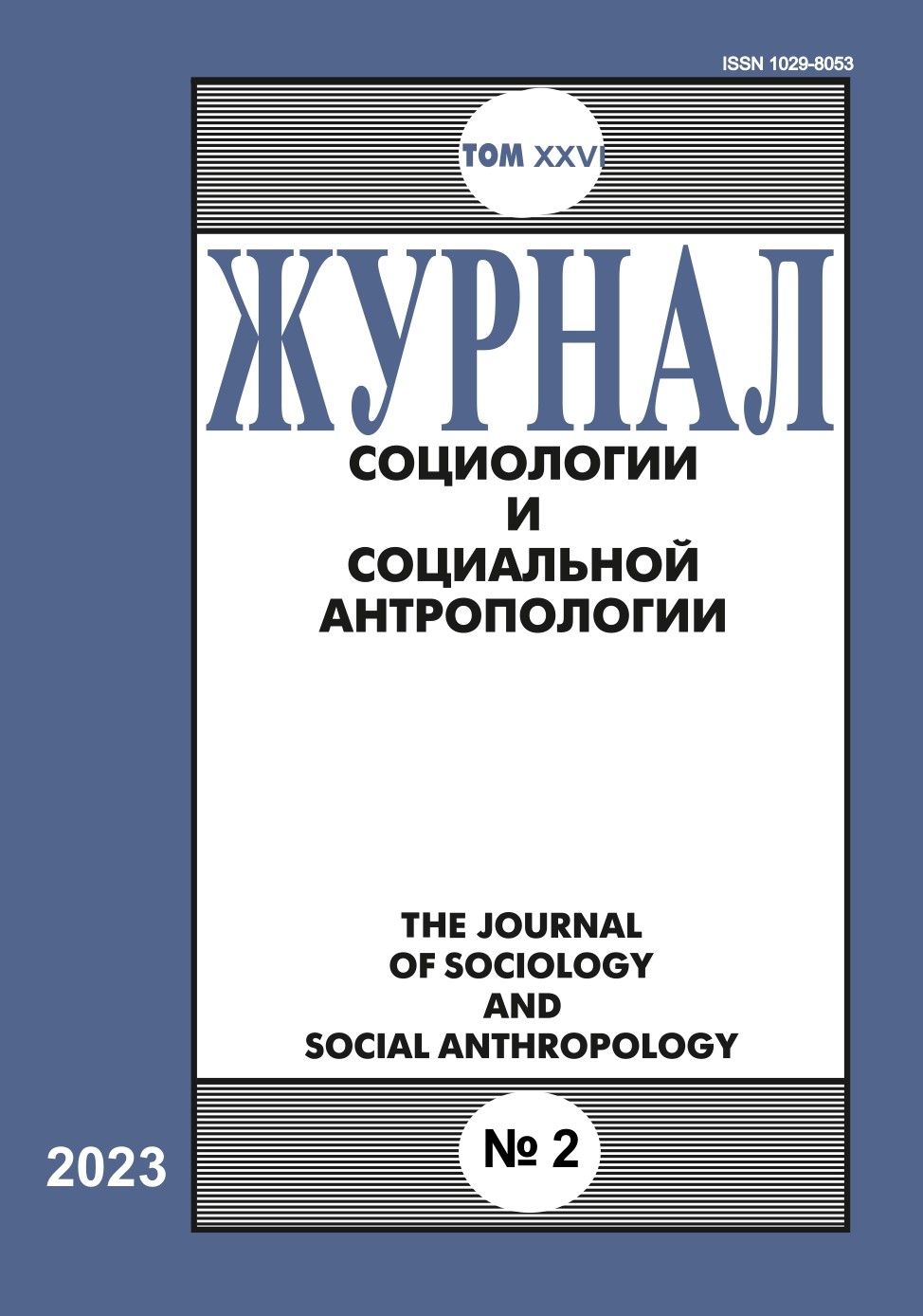Конфигурации полей общественных движений: конструирование «малых» и масштабных результатов деятельности
Аннотация
Литература
Бедерсон В.Д. (2020) Гражданские ассоциации и политический режим в мировой недемократической практике: между политическим контролем и социальной эффективностью. Полис. Политические исследования, 2: 37–52.
Желнина А.А., Тыканова Е.В. (2021) «Игроки» на «аренах»: анализ взаимодействий в городских локальных конфликтах (случай Санкт-Петербурга и Москвы). Журнал исследований социальной политики, 19(2): 205–222.
Кулмала M. (2011) Взаимодействие государства и гражданского общества в современной России: этнографический подход. Резюме. Laboratorium. Журнал социальных исследований, 3(1): 165–170.
Флигстин Н., Макадам Д. (2022) Теория полей. М.: Изд. дом Высшей школы экономики.
Bederson V., Semenov A. (2022) Between autonomy and compliance: The organizational development of Russian civil society. Resourceful Civil Society: Navigating the Changing Landscapes of Civil Society Organizations. Cham: Palgrave Macmillan: 171–194.
Crotty J. (2009). Making a difference? NGOs and civil society development in Russia. Europe-Asia Studies, 61(1): 85–108.
Fligstein N., McAdam D. (2011) Toward a general theory of strategic action fields. Sociological Theory, 29(1): 1–26.
Fr?hlich C. (2012) Civil society and the state intertwined: the case of disability NGOs in Russia. East European Politics, 28(4): 371–389.
Fr?hlich C., Jacobsson K. (2017) States shaping civic activism: comparing animal rights activism in Poland and Russia. The Sociological Quarterly, 58(2): 182–201.
Giugni M.G. (1998) Was it worth the effort? The outcomes and consequences of social movements. Annual Review of Sociology, 1(24): 371–393.
Javeline D., Lindemann-Komarova S. (2020) Financing Russian civil society. Europe-Asia Studies, 72(4): 644–685.
Kolb F. (2007) Protest and opportunities: the political outcomes of social movements. Frankfurt; N.Y.: Campus Verlag.
Ljubownikow S., Crotty J., Rodgers P.W. (2013) The state and civil society in Post-Soviet Russia: the development of a Russian-style civil society. Progress in Development Studies, 13(2): 153–166.
McAdam D., McCarthy J.D., Zald M.N. (1998) Social movements. In Smelser N.J. (ed.) Handbook of sociology. Beverly Hills; L.: Sage: 695–737.
Tykanova E., Khokhlova A. (2020) Grassroots urban protests in St. Petersburg: (non-) participation in decision-making about the futures of city territories. International Journal of Politics, Culture, and Society, 33(2): 181–202.
Useem B., Goldstone J.A. (2022) The paradox of victory: social movement fields, adverse outcomes, and social movement success. Theory and Society, 51(1): 31–60.
Yin R.K. (1994) Discovering the future of the case study. Method in evaluation research. Evaluation Practice, 15(3): 283–290.
Поступила: 14.11.2022
Опубликована: 03.07.2023






